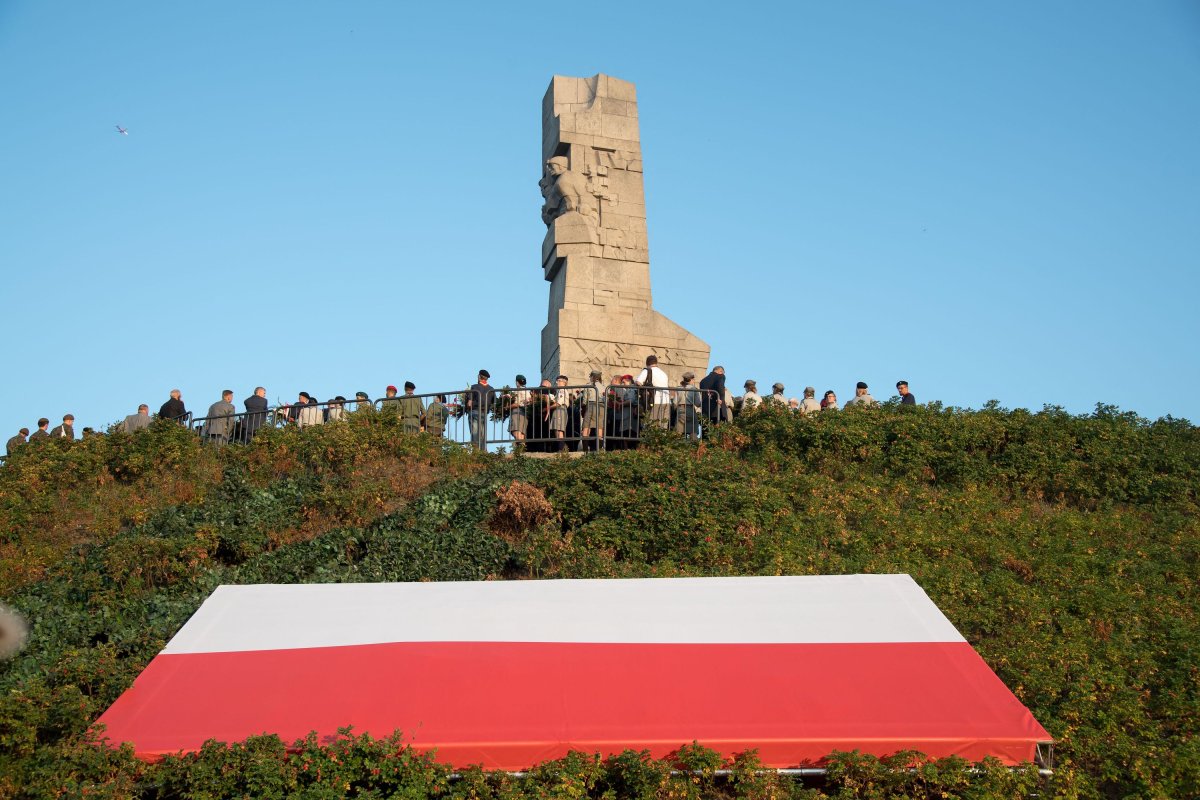Few nations in the world can match the United States in its commitment to law as the arbiter of human disputes. In the last century, while totalitarian states busied themselves trampling on human rights and freedoms, organizing an industry of death that produced the Holocaust and taking away the lives and wealth of millions of Europeans, the U.S. grew and thrived as a stable democracy and law-abiding government.
This is why Poles think it is vital for Americans to understand the issue of Germany paying compensation for damage caused during World War II. Responsibility for failing to resolve this issue, which still divides Poles and Germans, lies squarely with the German state.
In an attempt to systematically and deliberately eradicate the Polish and Jewish nations, Germany implemented an ideology of racial, national, and cultural supremacy that led to the Holocaust and the deaths of 5.2 million Polish citizens.
Despite German policy designed to force Polish and Jewish neighbors to turn on each other, Polish and Jewish cooperation was common. Along with clear instances of hope and success—reflected by the number of Poles honored by Yad Vashem—there was also tragedy—as seen with the Catholic Church's recent beatification of the Ulma family who were killed for refusing a German order to denounce the Jews they protected.
In 1939, Poland was the first to resist Adolf Hitler; the price Poles paid was horrendous. The dangers of resisting were clear, but defending their country drew Polish citizens together, including some 100,000 Polish soldiers of Jewish descent.
Poland's industrial potential was crushed and Poland's population was decimated, with millions being used as slave labor for German firms and others for medical experiments. The Germans enacted a policy of destroying Polish elites, which was alarmingly successful. Poland's post-war population in 1945 was approximately 30 percent lower than it had been in 1939.
After the war, Germany's GDP was higher than it had been in 1939. Poland's only recovered to 1939 levels in the late 1970s. It took almost as long for Poland's population to recover.

However, despite Poland suffering the greatest human and material losses of all European countries during the war, it did not receive any reparations. Poland being placed into the Soviet sphere of influence after 1945 and then sidelined in 1990 despite gaining independence in 1989 meant that no treaty was ever signed with Germany and no payment for war damages was ever made.
In contrast, Germany paid reparations to all other World War II victim states after the Potsdam Conference in 1945. Poland's position is unique and the disparity between how Poland and other victim states were treated is startling.
Last year, the Polish government, with public and cross-party support, revived the issue by formally asking the German government to enter talks on compensation for war losses. We act as the last representatives of the wartime generation who remember the terror of 1939-45.
We reminded Germany of a basic principle of the rule of law and of Western civilization, i.e. that victims must receive material and moral compensation as redress for harm and loss. Such compensation for evidence-backed crimes is not limited by time—even after 78 years.
As a NATO member and EU superpower, Germany must set a global example. It would be morally questionable and an obvious contradiction for Germany to play the role of a guarantor of peace if it avoids liability for its World War II crimes, doesn't pay compensation to innocent victims—hundreds of thousands of whom are still alive—and refuses to talk to victim states. By talking to Poland, Germany will prove it isn't afraid of its obligations, is aware that it cannot apply double standards, and can take center stage as a leading state.
I am optimistic that Poland and Germany will find a mutual solution, close a difficult historical chapter, and establish close future cooperation, but it will take time. What is indisputable, however, is that the first step toward finding reconciliation and moving forward is to talk. Without this step, it will be difficult for Poland to support Germany's nomination should it be proposed. Especially today, we must show that talking and reconciliation is fundamental to building future relationships. As long as Germany refuses to engage in talks with Poland, its candidacy for a permanent seat on the UN Security Council would be absurd.
Arkadiusz Mularczyk is Poland's Deputy Minister of Foreign Affairs.
The views expressed in this article are the writer's own.
Uncommon Knowledge
Newsweek is committed to challenging conventional wisdom and finding connections in the search for common ground.
Newsweek is committed to challenging conventional wisdom and finding connections in the search for common ground.
About the writer
To read how Newsweek uses AI as a newsroom tool, Click here.






